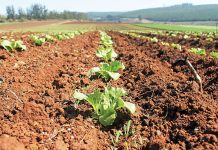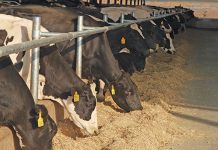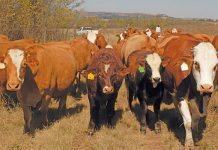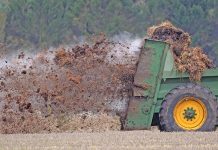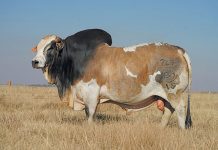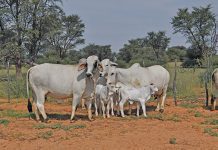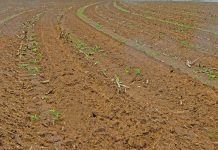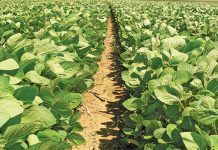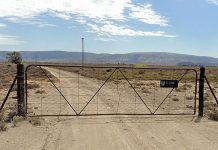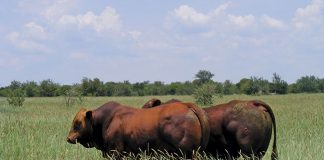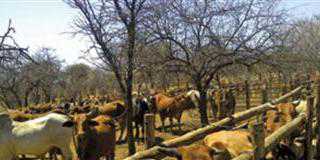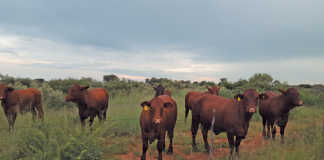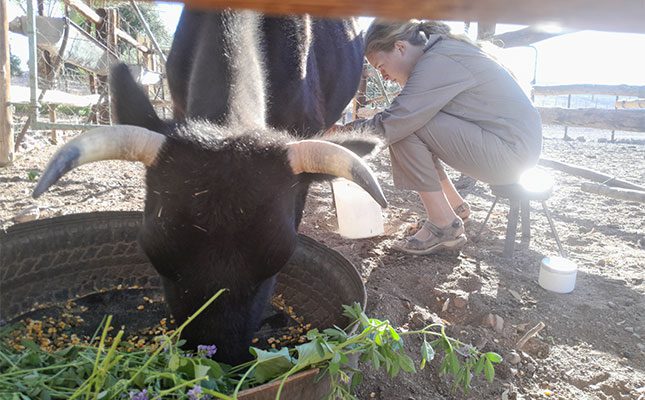
Photo: Helmeringhausen farmers' association
The village of Helmeringhausen is situated in the arid southern region of Namibia, some 200km north-east of Lüderitz and 500km south of the capital Windhoek. The district has been suffering from a severe drought for more than a decade.
According to Jörg Gaugler, chairperson of the Helmeringhausen Farmers’ Association (HFA) and owner of Dabis farm, the drought has had a distressing economic, social, and emotional impact on the farming community. The economic impact alone has been severe.

“With our Dexter project, we are starting right on our doorstep to give community members a chance to become fully part of the HFA as well as of the NAU [Namibia Agricultural Union]. In this way, the burden to be borne is divided between all members, just as it should be in a healthy community,” says Gaugler.
“The situation had become so bad that some of the cash-strapped farmers could simply no longer afford the HFA fees, nor could they afford to visit larger towns like Lüderitz or Keetmanshoop for shopping and, as a result, had become more and more isolated.
“One must keep in mind that we farm under extremely extensive and vast conditions, which often adds to the sense of isolation caused by the drought. This could not be allowed to continue and that is why the association came up with the Dexter project,” he added.
Plucky little Dexters
The HFA consequently established a herd of Dexter cattle a few years ago with the objective of generating sufficient funds to cover the NAU and HFA fees of the community members who could no longer afford them.
Gaugler, brimming with enthusiasm about the project, lovingly refers to the cattle as “little Dexter bugs”.
According to Lizelle Murray, HFA treasurer, the association now has 28 cattle on register.
“Our plan is to eventually distribute two cows to each of our 59 members. In 2024, we generated enough funds to cover the fees of two main members of NAU and one supporting member. “This year, three main NAU members and three auxiliary members will be added.
“For us as a farmers’ association, the project is not just about its financial benefits. Our greatest joys nowadays include a meeting hall that is full, community activity, and the energy of our members, all brought about by the Dexters. Despite their diminutive size, these cattle have really brought about a renaissance in Helmeringhausen,” says Murray.
Impressive volume of milk
Local farmer Jörn Miller and his family received two cows and a bull about two years ago. Each cow came with a newly born male calf.
“From the outset, we were able to milk both cows and were amazed by the [volume of milk we received]. Each cow gave us 4ℓ to 6ℓ per day. The quality of the milk is superb, too, despite the fact that the grazing conditions on the farm are poor and the terrain is extremely rocky,” says Miller.
Both cows fell pregnant within a few months and gave birth within about 12 months of their arrival. Then, a few months ago, one of the cows produced a third calf. According to Miller, this means she has had three calves in 21 months, despite two very poor rainy seasons.
“Between the two cows, there have only been very short breaks in milk production of between six and eight weeks. For us it is important that the cattle remain in close contact with humans every morning.
“Bulls and heifers are each given 500g of lucerne pellets every day as a treat, while the milk cows are given 1kg of finisher pellets while they are being milked. In this way, the cows remain calm and do not have to be tethered during milking,” explains Miller.
Cattle on loan
The females from the herd are distributed on loan to the beneficiaries for their own use; however, the association retains ownership of these animals and their progeny.
The members take care of the cows in all respects, and in the meantime they may use the milk for themselves.
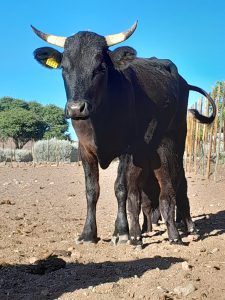
The male weaners are ultimately sold on behalf of the HFA to cover member fees. Heifers are retained in order to expand the herd to be able to support more members.
Gaugler says: “Don’t be fooled by the Dexter’s small size. It is a viable dual-purpose cattle breed, despite its size. It is a gutsy, highly economical breed that makes perfect financial sense.
“The Dexter is hardy and adaptable and fares extremely well in our arid farming conditions as a strong grazer that copes well with extensive grazing conditions.
“They are excellent milkers and produce top-quality milk. For instance, the fat globules in Dexter milk are very small, making the milk homogenous and readily digestible.”
High-quality milk
Gaugler says access to the superior milk has made a marked difference to the lives of the recipients and their workers. Products like yoghurt, cheese and even ice cream are produced on the farms.
“Our HFA meetings have become quite the basis for bartering. The families bring along their home-made goods to be exchanged and bartered between the members. It is a privilege to witness the camaraderie among them, seeing them laughing and engaging with each other.
The true value of the Dexter project lies in the fact that we all share the burden of the challenges we are faced with.
“Somebody not familiar with the harsh realities of drought and going without, as well as the emotional demands accompanying such an ordeal, will probably not understand the toll it has taken on the community. But for us, such occasions [as our meetings] are worth more than gold,” says Gaugler.
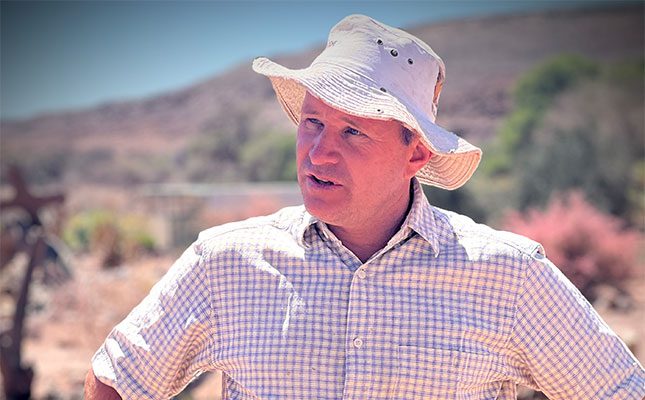
The sale of two weaners usually generates an income of between R3 000 and R4 000, which is more than enough to cover the HFA and NAU membership fees for one farmer, with a little bit left over for the association. An added bonus, according to Gaugler, is that the Dexter’s value is not affected by inflation.
“The HFA bought the first four cows in 2020. The breed is quite popular in Namibia, and the country also has some Dexter stud breeders. The choice fell on the Dexter because of its calm temperament, top milk production, and small size, which makes transportation relatively easy. The HFA bull is rotated among the cows on the farms,” he adds.
The Dexter yields a higher proportion of saleable meat relative to its body weight than most beef breeds. This is because the rib-eye muscle relative to body weight is significantly larger in the Dexter than in most other breeds.
“Dexter beef is tender, well marbled, and has an excellent texture,” explains Gaugler.
A Dexter cow can produce up to six times its body weight in milk during a single lactation, even in extensive conditions.
Celebrating a centenary
“Apart from the social benefit, [the project] offers the HFA an opportunity to make a stable investment on behalf of its members and build up a quality [Dexter] gene pool.
“The HFA commemorates its 100th year of existence in 2025. This association has carried its members through extremely difficult times, including two world wars and extended periods of drought.
“Many of the founders’ descendants are still farming in the district, and now it is our turn, and privilege, to follow suit and do all we can to help our fellow farmers through an extremely challenging time,” says Gaugler.
For more info email Jörg Gaugler at [email protected].

